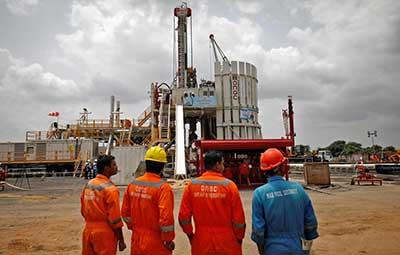Date: 23/01/2023
Relevance: GS-3: Infrastructure: Energy
Key Phrases: collaborations, EU-India Clean Energy and Climate Partnership, energy transition, Just Energy Transition Partnership,
Why in News?
- Energy is a constantly evolving industry; therefore “collaborations” whether equity-based or as service providers or technical consultants are common.
- These collaborations take place between institutions, companies, or governments. But, for collaborations to succeed the key is “implementation”.
Need for collaborations:
- Rapidly changing technology:
- Any stream of energy — oil and gas, renewable, or the latest hydrogen — is an evolving and high technology-driven industry, which is changing at a rapid pace.
- For example, rapid digitization is taking place and Indian companies are quick to adopt it through collaborations.
- High energy demand:
- India is now among the world's top three energy-consuming countries.
- Its energy sector is set to keep growing in the coming decade as the country focuses on domestic energy production including renewables, nuclear, and energy efficiency.
- Transition towards cleaner energy:
- Whether it is for the transition from fossil to the non-fossil environment or producing cleaner energy through fossil fuel, expertise is required and collaboration is a natural process. Be it through joint ventures or consortiums.
- Ambitious Energy Targets:
- India has an ambitious renewables target (175 GW installed capacity by 2022, 500 GW of ‘non-fossil energy production capacity’ by 2030) and is planning a massive deployment of offshore wind energy blocks within the next years for a total of 37 GW by 2030.
EU-India Clean Energy and Climate Partnership:
- In 2016, the EU and India established the EU-India Clean Energy and Climate Partnership (CECP), which promotes access to and dissemination of clean energy and climate-friendly technologies, and encourages research and the development of innovative solutions.
- Through this collaboration, the EU aims to strengthen its cooperation with India in the field of renewable energy, while supporting its clean energy transition and ambitious climate mitigation targets.
- The collaboration is focused, among other activities, on solar energy, offshore wind energy, integration of renewable energy and storage, smart grids, biofuels, and energy efficiency in buildings, and also on renewable hydrogen.
Where do such collaborations happen?
- While these places are good for networking, they do not always result in a concrete relationship.
- Many memoranda of understanding are signed, but not all are executed. The reason being execution depends on the strategy of the company involved or its requirement.
- ONGC has mature and discovered fields where collaboration is required to cut costs and enhance production. Even for the new finds collaboration is required.
- Areas where the company can explore collaborations— exploration, as ONGC has to explore fast and deepwater explorations are harvesting good dividends globally, Enhanced Oil Recovery (EOR) and Increased Oil Recovery (IOR) — ONGC has some expertise there and can share knowledge and data, renewable, carbon capture, storage and sequestration (CCUS) and hydrogen.
Just Energy Transition Partnership (JETP):
- These JETPs are a nascent financing cooperation mechanism, the aims of which are to help a selection of heavily coal-dependent emerging economies make a just energy transition.
- The first such JETP emerged from COP 26 in Glasgow, when South Africa was promised USD 8.5 billion in financing by France, Germany, the United Kingdom, the United States, and the European Union.
- A second tranche of countries announced as partners in the JETP approach included India, Indonesia, Vietnam, and Senegal.
Need for spadework:
- Coping with energy transition:
- For coping with the energy transition, collaboration is the accepted norm.
- In Europe things are changing very fast and the shift to Electric Vehicles will be done by 2030.
- Energy transition is an area where expertise and skill are most in demand today.
- Refineries or petrochemicals work on complicated technical systems and worldwide players whom have the technology collaborate. The energy transition is a very commercial issue in the West.
- Small group collaborations:
- It is also crucial to create a knowledge bank. It is not necessary for collaborations to happen at conferences. They can fructify in smaller groups or one-on-one meetings.
- India’s engagement with the West:
- India is one of the countries with which the West is engaging to conclude a partnership on energy transition this year during the country’s G20 Presidency.
- Just Energy Transition Partnership (JETP):
- The implementation of the Just Energy Transition Partnership (JETP), is a priority for the European Commission, which is committed to working together through the G7 to ensure that this model sets a good example for the broader benefit of developing countries seeking coordinated support to implement their own ambitious net-zero and climate resilient plans.
Conclusion:
- Enhanced energy technology is the key to ensuring environmental sustainability together with economic growth and energy security.
- For the energy collaborations to be successful, the key is implementation and this can happen only if a focussed approach is adopted.
- In some cases, the governments need to take the initiative, but in most cases, it is purely commercial – company to company. So, a lot depends upon the strategy of the companies.
Source: The Hindu BL
Mains Question:
Q. Why are international energy collaborations necessary? What role can the government and private sector play in the success of these collaborations? Discuss.






















